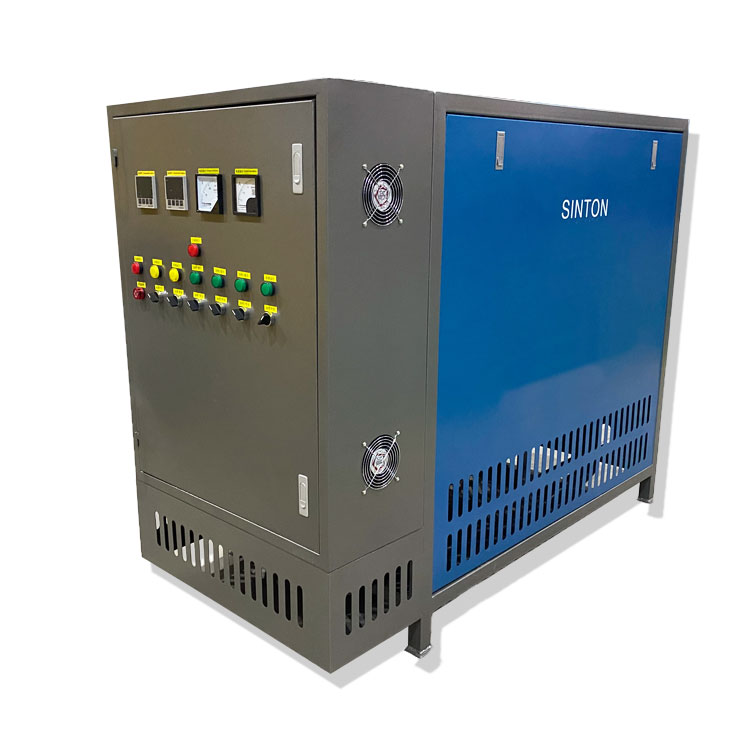Tel: +86-185-5601-8866
Heating Equipment
2024-06-24
Electric thermal oil heaters are generally more energy-efficient compared to gas or oil-fired heaters for several reasons:
Direct Energy Conversion: Electric thermal oil heaters excel in converting electrical energy into thermal energy with nearly 98% efficiency. This high efficiency is primarily because electrical resistance heating elements used in these heaters convert almost all the input electricity into heat. In contrast, gas and oil-fired heaters lose a significant portion of the energy contained in the fuel. These losses occur through flue gases, unburned hydrocarbons, and heat dissipation in the combustion process. For instance, a well-maintained gas-fired heater typically has an efficiency of 80-90%, while older models can be much less efficient. The lack of intermediary conversion steps in electric heaters ensures minimal energy wastage, making them inherently more efficient.
No Combustion Losses: Electric thermal oil heaters avoid the efficiency losses associated with combustion processes. In gas or oil-fired systems, burning fuel creates combustion gases that must be vented, resulting in energy losses. These flue gases often carry away a portion of the heat generated, reducing overall system efficiency. The need for ventilation to safely expel combustion byproducts can lead to additional heat loss and energy inefficiency. Electric heaters eliminate these issues as they do not rely on combustion, thus providing a cleaner, more efficient heating process with no emissions of CO2, NOx, or other pollutants.
Precise Temperature Control: The precise temperature control of electric thermal oil heaters significantly enhances their energy efficiency. Advanced digital controllers and thermostats allow for exact temperature regulation, ensuring the system operates only as needed. This precision is harder to achieve with gas or oil-fired systems, which can suffer from lag times and overshooting of desired temperatures. Electric heaters can maintain tight temperature tolerances, reducing energy waste and ensuring consistent thermal performance. This capability is particularly beneficial in processes requiring stable temperatures, as it avoids the energy penalties associated with frequent cycling and temperature fluctuations common in combustion-based systems.
Minimal Maintenance: Electric thermal oil heaters generally have fewer moving parts and simpler designs compared to gas or oil-fired heaters, leading to reduced maintenance requirements. Combustion systems can suffer from issues such as soot buildup, corrosion, fouling of heat exchange surfaces, and degradation of burner components, all of which necessitate regular maintenance to prevent efficiency losses. In contrast, electric heaters primarily consist of heating elements and control systems that are less prone to such problems. The reduced maintenance not only lowers operational costs but also helps maintain high efficiency over the system’s lifespan. Regular maintenance for gas or oil systems can involve significant downtime and labor, while electric systems can often continue operating with minimal intervention.
Reduced Standby Losses: Standby losses occur when a heating system consumes energy even when not actively heating. In gas or oil-fired systems, energy is often used to maintain pilot lights, keep fuel lines warm, or power auxiliary components. These losses can accumulate over time, reducing overall system efficiency. Electric thermal oil heaters, on the other hand, can be completely powered down when not in use, virtually eliminating standby energy consumption. Modern electric heaters can quickly reach operating temperatures from a cold start, further minimizing the need for continuous operation and standby losses. This ability to effectively manage energy usage during periods of inactivity significantly enhances their efficiency compared to combustion-based systems.
Electric Thermal Oil Circulation Heater
